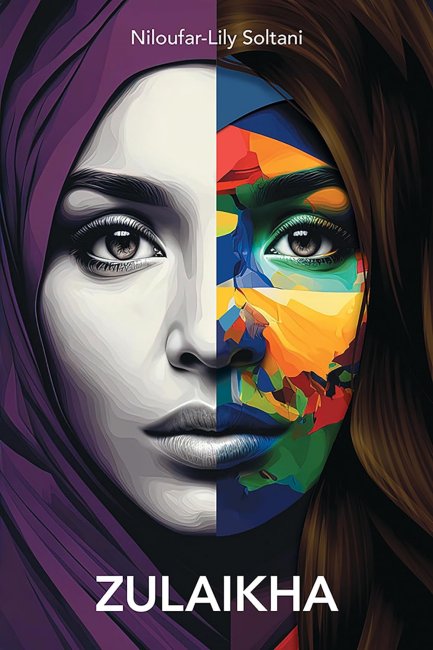
Canadian author Soltani’s first novel takes us to her Iranian heritage with a powerful story exploring the life of the fictional Zulaikha (pronounced Zuli-ka), born in 1945 and therefore exposed to the various changes that have overtaken Iran in the last seventy plus years including the suppression of female rights since the Islamic Revolution at the end of the 1970’s. Not that Zulaikha’s life had been particularly rosy even before the revolution and the subsequent Iran-Iraq war in the 1980’s. From being pulled out of school in 1958 at the age of thirteen because as her mother, Madineh, saw it “no man would marry a girl with an education”, her role was to get married and her wishes were seen as unimportant. The book however starts in December 2007 and in Amsterdam rather than Iran. Sixty two year old Zulaikha has been visiting her son, who now lives in The Netherlands and at Schiphol airport on the way back to Tehran she meets Kia, a man she hasn’t seen since the 1960’s. There is no hint as to the relationship between them other than he used to know her missing brother Hessam, in this opening chapter, we slowly find out more as the book progresses but the two of them meeting triggers a postponement of their flight and security take Zulaikha away for questioning. Who is this man and why should their chance meeting be seen as a cause of concern? We find out the who eventually but we are left in suspense as to what will happen to Zulaikha when she returns to Iran the next day as the book leaps backward to 1958 and begins a chronological narrative until we eventually get back to the plane landing.
Soltani gives her protagonist a difficult time, from being a child bride as the second wife of a merchant in Bahrain whom she only meets just before the wedding, to becoming a widow whilst still only seventeen and returning to Iran where she ends up having an abortion after a doomed illicit relationship. Zulaikha grows up in Abadan, home to what was at one time the largest oil refinery in the world and crucially close to the border with Iraq which made it a prime target in the 1980’s Iran-Iraq war, so much so that the population plummeted from around 300,000 in 1980 to just 6 in 1985 and Zulaikha along with her family and most of the population of the city became refugees in Tehran and it is in 1985 that Hessam vanishes, presumed killed on the front line. She also spends time in the notorious Evin prison but despite the hardships piled onto Zulaikha the narrative drive of the story keeps you reading, indeed it’s a difficult book to put down you just want to know more of her story. It is also a book that is clearly well researched with many real events explored, such as the Abadan Cinema Rex fire in 1978 which killed over four hundred people and became one of the turning points in the overthrow of the Shah with rumours blaming his secret police force despite the barring of the doors and subsequent arson actually being perpetrated by Islamic militants. I learnt so much more Iranian history through reading this novel.
The book first came out at the end of 2023 in Canada although it is now available more widely and it is definitely worth seeking out, it is beautifully written and the story of the ups and downs of Zulaikha’s life is engrossing with the various threads largely tied up by the end but you still want to know more about Zulaikha which is a good place to leave her story. This blog is being published on Tuesday 19th March and the Iranian new year is marked on the first day of Spring, this Thursday 21st March so Happy New Year to any of my readers whom are celebrating this, or in Farsi Nowruz Mobarak.
